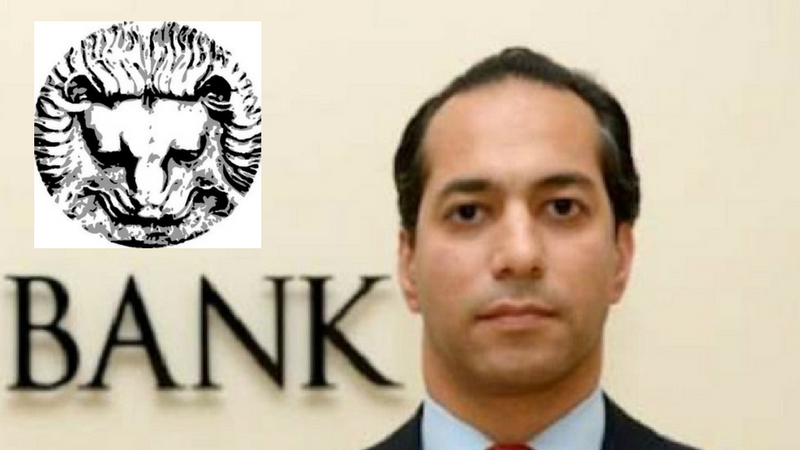A witness told a US court that a company called Stratus Construction, which is owned by the family of banker Ali Sadr Hasheminejad, had arranged for the payment of an apartment in a Venezuelan housing project to be made in US dollars.
Iranian national Ali Sadr Hasheminejad, the owner of now-defunct Pilatus Bank, is accused before a US court with money laundering and breaching US sanctions against Iran by moving money through a housing project in Venezuela.
The case revolves around a multi-million dollar payment, which was processed through the US banking system. The US Assistant Attorney is arguing that this constitutes a federal crime as it breaches US-Iran sanctions.
The prosecution called a woman who testified that she sold her apartment in Venezuela for $170,000. When asked whether the buyer had any trouble paying the full price of the purchase, the witness said yes.
The assistant attorney then asked “who arranged to pay you in US dollars?”, to which the woman replied “Stratus.” Stratus Construction is a company owned by the Hasheminejad family.
He also cross-examined a Citibank compliance officer who was asked about the bank’s operations worldwide. The officer said that Citibank had a physical presence in more than 90 countries and explained that the sanctions on Iran target the government, the country and the individuals in it.
When questioned by Sadr’s lawyer Brian Herberlig, the Citibank witness said that he was not aware of the bank facing any penalties by the US Treasury Department on the actions of this case. He said that he was not asked to look into this matter before the testimony.
Sadr defence gets late notice on bank documents about Stratus
The Assistant US Attorney wrote to the court saying that it had failed to provide the defence counsel of Sadr with documents related to the Stratus company.
“Stratus was founded in 1978 in Tehran, Iran; Stratus International specializes in providing contracting services to infrastructure projects such as roads, railways, dams, tunnels, airports and buildings; Stratus is presently working on a 7000 Apartment Unit ‘New Ojeda’ Housing Development Project in Venezuela,” the document states.
In the letter presented to the judge, the assistant attorney said that, back in 2011, the bank processing the payment received a response to its inquiry “stating, in sum and substance, that Stratus’s address is in Turkey, it is registered in Turkey, it does construction in, among other places, Venezuela.”
Stratus was then added into the US government’s sanctions filter to monitor any future payments.
The document said the authorities were seeking to confirm whether the Office of Foreign Assets Control took any action based on the bank’s disclosure but is willing to “stipulate that OFAC did not take action against Bank the Stratus entities, or the defendant”.
“The Government regrets its error and is working to confirm that there is nothing else related to the bank investigation that has any bearing in this case,” the letter adds.
They had been aware of the letter since mid-January, and that, at the time, mistakenly believed it was part of the discovery in the case, the letter said.
The trial against the banker began on 3 March. Last week the prosecution started its opening statement by accusing Sadr of using “smoke and mirror” tactics to hide his Iranian identity throughout a multi-million dollar business deal in Venezuela.
In his opening statement, defense lawyer Reid Weingarten said Sadr was afraid the banks would refuse him because of his nationality and argued that his interest in the project in Venezuela derived from his wish to help civilians after a flood which left the city in ruins.
The case continued on 8 March when prosecutor Michael Krouse called for the testimony of two experts to stop as neither were qualified to discuss ‘de-risking’. One of the persons called to testify was Trita Parsi, the founder of the National Iranian American Council – an NGO which describes itself as “dedicated to strengthening the voice of Iranian Americans and promoting greater understanding between the American and Iranian people.”
Krouse argued that the witness never worked for a bank or worked on any studies about the concept of “de-risking” and said the evidence was “unreliable”.
In a previous sitting, the prosecution displayed the four passports Sadr purchased from St Kitts and Nevis and showed the jury that he travelled more than 100 times and paid multiple visits to Malta, Istanbul, London, Zurich and Tehran.
The Shift had previously reported how Sadr allegedly made use of four passports and used five different names as well as two different dates of birth when conducting international business.
Pilatus Bank first came into the spotlight after journalist Daphne Caruana Galizia reported on the bank’s links to money laundering, kickbacks to Maltese politicians and large transfers to members of the Azerbaijani ruling elite. The European Central bank withdrew Pilatus Bank’s license in November 2018.
The case continues.












